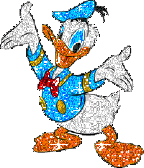
La Colombie, officiellement la République de Colombie (en espagnol República de Colombia), est un pays situé au Nord-Ouest de l'Amérique du Sud. Elle est l'unique pays d'Amérique du Sud doté de côtes sur l'océan Pacifique et la mer des caraïbes. Sa capitale est Bogotá, sa langue nationale est l'espagnol et sa monnaie est le peso. La Colombie est le troisième plus grand pays hispanophone au monde après le Mexique et l'Espagne.
Histoire
Les colonisateurs espagnols arrivèrent dans cette région aux alentours de 1500, y trouvant les tribus indigènes Chibchas (ou Muiscas) et les Taironas, lesquelles furent décimées et conquises. Les Espagnols y ont implanté diverses colonies, qui, plus tard, furent converties en provinces fondant la Nouvelle-Grenade comme noyau au tout début et, à partir de 1717, comme vice-royauté. Cette vice-royauté incluait diverses provinces qui avaient appartenu jusqu'à ce moment à la juridiction des vice-royautés de la Nouvelle Espagne et du Pérou.
Le mouvement indépendantiste débuta en 1810, mené en grande partie par Simón Bolívar et Francisco de Paula Santander, et triompha en 1819. Le territoire qui était alors connu comme étant la vice-royauté de Nouvelle-Grenade, fut converti en République Fédérale de la Grande Colombie suite à la Bataille de Boyacá (le 7 août 1819).
Les divisions au sein du pouvoir interne conduisirent en 1830 à la séparation des départements qui composaient la Grande Colombie : le Venezuela, l'Équateur et la Colombie. À la suite de cette séparation, Cundinamarca prit le nom de Nouvelle-Grenade jusqu'en 1886 où il prit le nom actuel de République de Colombie. Ces divisions internes demeurèrent, déclenchant ainsi une guerre civile qui aboutit à la sécession de Panamá en 1903, avec l'ingérence des États-Unis.
En 1948, l’assassinat à Bogota du dirigeant de gauche Jorge Eliecer Gaitan provoque une guerre civile - La Violencia - entre les deux forces politiques qui se partagent le pouvoir, libéraux et conservateurs. Cela va durer huit ans (1948-1957) et provoquer près de trois cent mille morts[1].
La réconciliation des libéraux et des conservateurs ne se traduit pas par un programme de développement social et de réduction des inégalités. Plusieurs groupes armés refusent, en conséquence, de rendre les armes.
Depuis les années 1960, la Colombie connait donc un conflit armé impliquant des guérillas telles que les Forces armées révolutionnaires de Colombie (FARC) ou l'Ejército de Liberación Nacional (ELN) et des groupes paramilitaires d'extrême-droite, mis sur pied par les grands propriétaires terriens, comme les Autodéfenses unies de Colombie (AUC) où les Águilas Negras (Aigles Noirs), désormais rassemblés au sein d’une seule organisation (AUC), afin d’être reconnus comme de véritables acteurs politiques.
Le mouvement indépendantiste débuta en 1810, mené en grande partie par Simón Bolívar et Francisco de Paula Santander, et triompha en 1819. Le territoire qui était alors connu comme étant la vice-royauté de Nouvelle-Grenade, fut converti en République Fédérale de la Grande Colombie suite à la Bataille de Boyacá (le 7 août 1819).
Les divisions au sein du pouvoir interne conduisirent en 1830 à la séparation des départements qui composaient la Grande Colombie : le Venezuela, l'Équateur et la Colombie. À la suite de cette séparation, Cundinamarca prit le nom de Nouvelle-Grenade jusqu'en 1886 où il prit le nom actuel de République de Colombie. Ces divisions internes demeurèrent, déclenchant ainsi une guerre civile qui aboutit à la sécession de Panamá en 1903, avec l'ingérence des États-Unis.
En 1948, l’assassinat à Bogota du dirigeant de gauche Jorge Eliecer Gaitan provoque une guerre civile - La Violencia - entre les deux forces politiques qui se partagent le pouvoir, libéraux et conservateurs. Cela va durer huit ans (1948-1957) et provoquer près de trois cent mille morts[1].
La réconciliation des libéraux et des conservateurs ne se traduit pas par un programme de développement social et de réduction des inégalités. Plusieurs groupes armés refusent, en conséquence, de rendre les armes.
Depuis les années 1960, la Colombie connait donc un conflit armé impliquant des guérillas telles que les Forces armées révolutionnaires de Colombie (FARC) ou l'Ejército de Liberación Nacional (ELN) et des groupes paramilitaires d'extrême-droite, mis sur pied par les grands propriétaires terriens, comme les Autodéfenses unies de Colombie (AUC) où les Águilas Negras (Aigles Noirs), désormais rassemblés au sein d’une seule organisation (AUC), afin d’être reconnus comme de véritables acteurs politiques.
Culture
La culture colombienne a subi une grande influence de la culture espagnole, la religion, la danse, la musique et dans la vie quotidienne.
La religion catholique tient une place très importante dans la culture colombienne. En effet, la grande majorité des colombiens sont catholiques, et près de 40% d'entre-eux sont pratiquants.
Le mélange des cultures espagnole, africaine, et amérindienne ont modelé la façon de vivre des colombiens. Ainsi, la salsa cubaine est également la danse la plus populaire en Colombie. Le flamenco et la cuisine espagnole sont très répandus dans le pays.
L'influence culturelle américaine se ressent fortement en Colombie. La jeunesse colombienne s'est beaucoup "américanisée" depuis les années 90, écoutant la pop music des Etats-Unis et regardant les émissions télévisées américaines. Le pays est émmetteur de la chaine CNN. La Colombie est, par exemple, le troisième pays possédant le plus de restaurants Mc Donalds en Amérique du Sud, derrière le Brésil et l'Argentine.
La religion catholique tient une place très importante dans la culture colombienne. En effet, la grande majorité des colombiens sont catholiques, et près de 40% d'entre-eux sont pratiquants.
Le mélange des cultures espagnole, africaine, et amérindienne ont modelé la façon de vivre des colombiens. Ainsi, la salsa cubaine est également la danse la plus populaire en Colombie. Le flamenco et la cuisine espagnole sont très répandus dans le pays.
L'influence culturelle américaine se ressent fortement en Colombie. La jeunesse colombienne s'est beaucoup "américanisée" depuis les années 90, écoutant la pop music des Etats-Unis et regardant les émissions télévisées américaines. Le pays est émmetteur de la chaine CNN. La Colombie est, par exemple, le troisième pays possédant le plus de restaurants Mc Donalds en Amérique du Sud, derrière le Brésil et l'Argentine.







